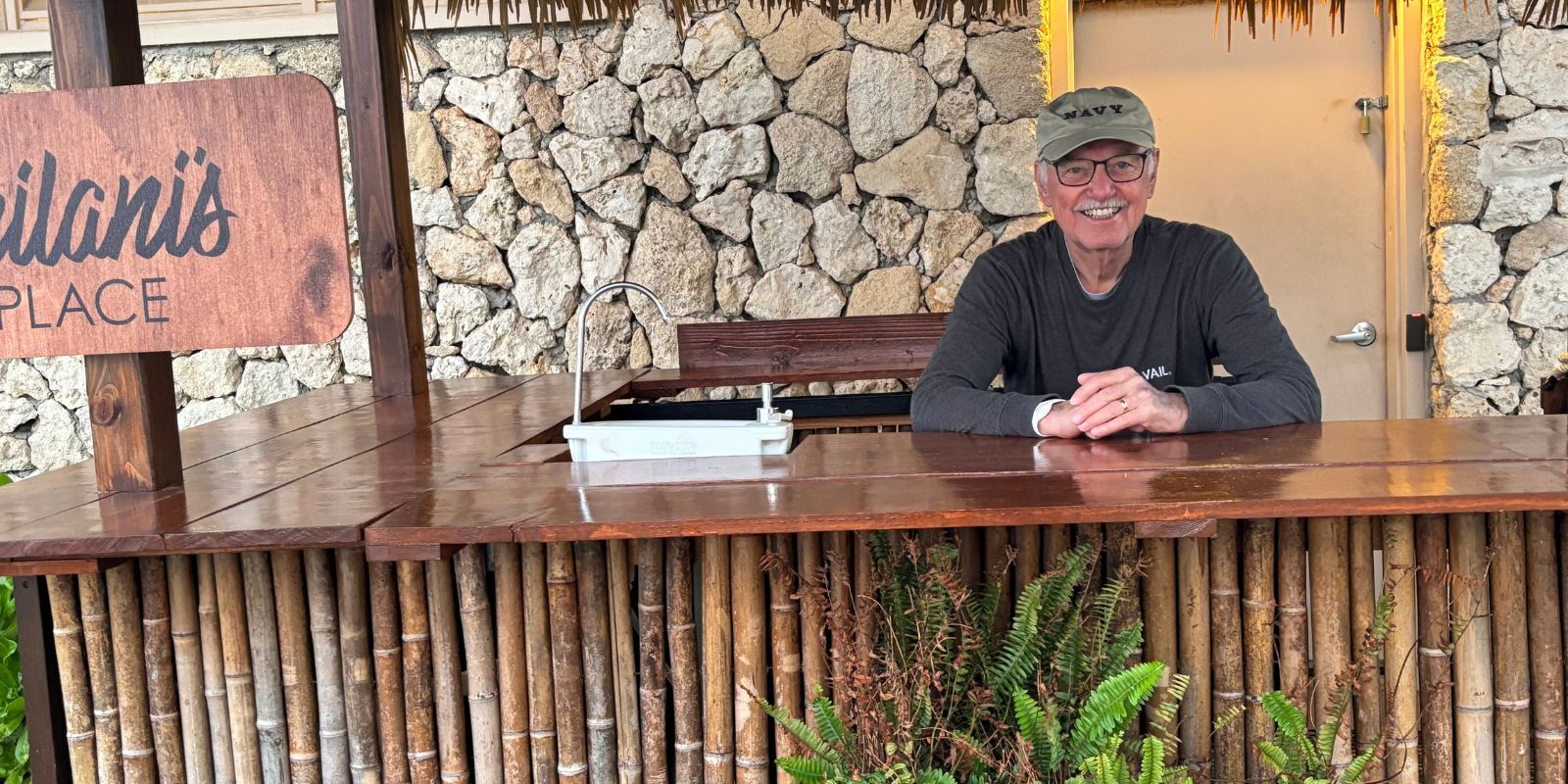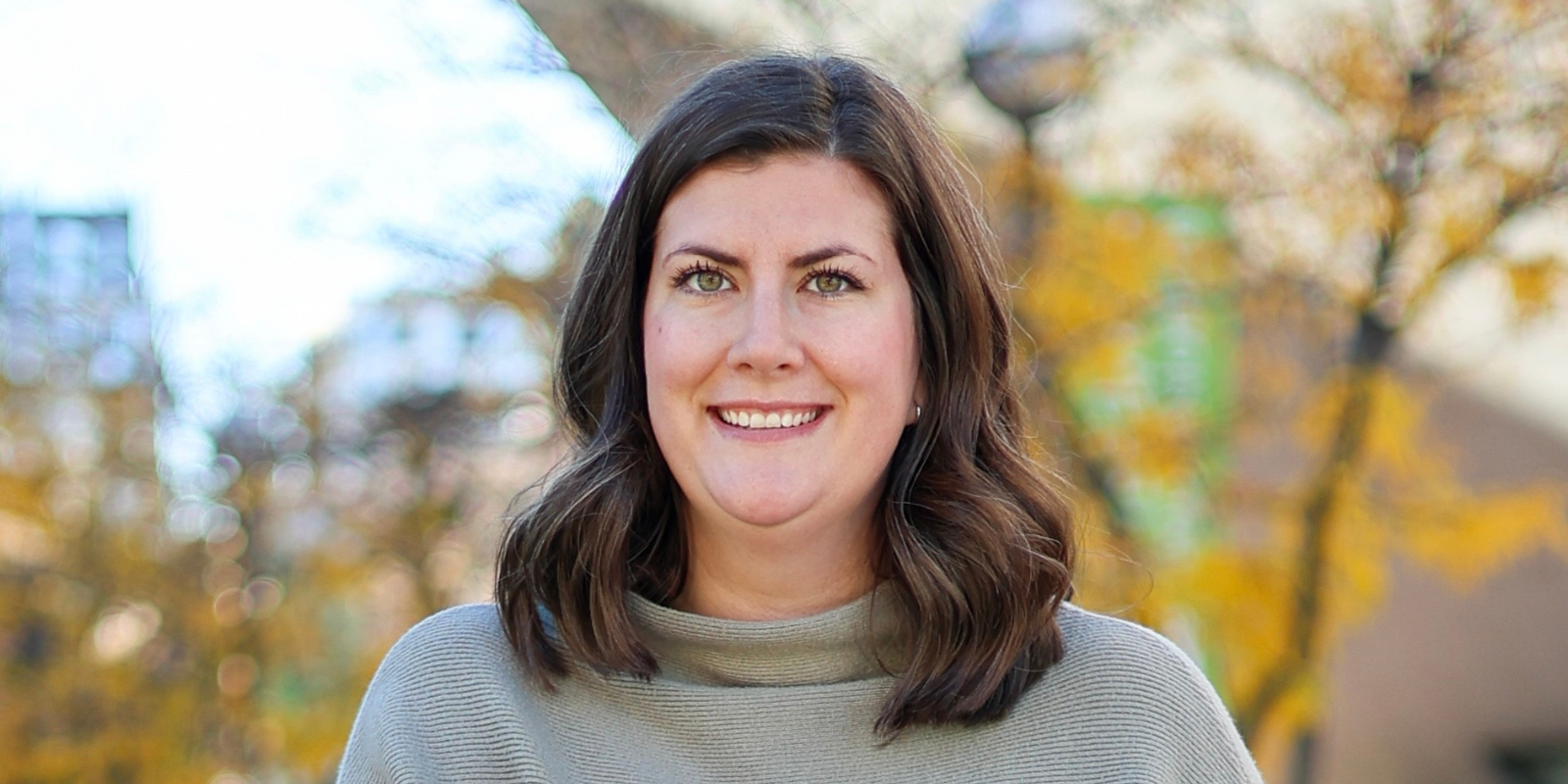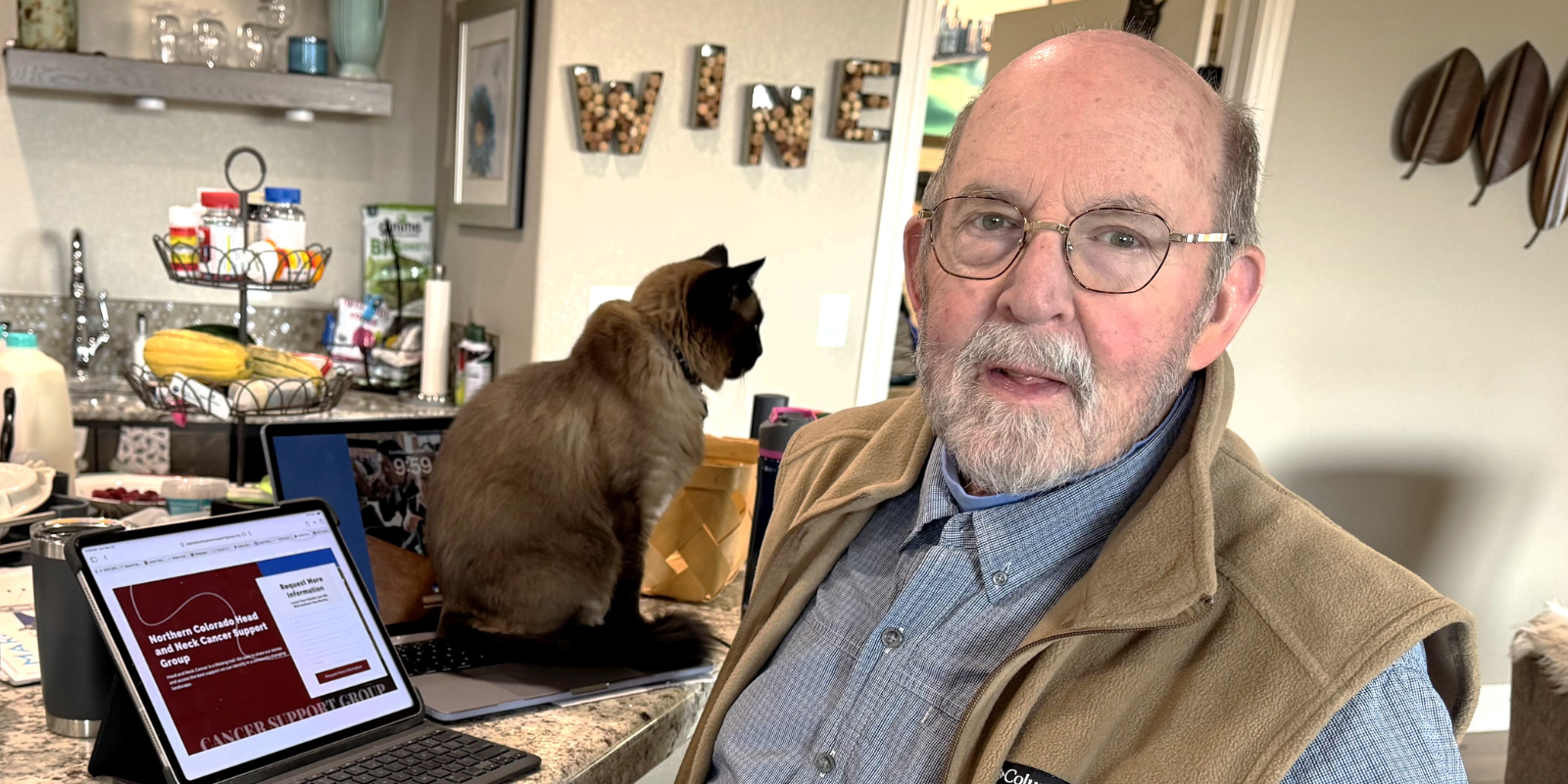Two years after her lung cancer diagnosis in 2019, Dan Wu first came to D. Ross Camidge, MD, PhD, at the University of Colorado Cancer Center for a second opinion.
“Dr. Camidge saved my life,” Wu said.
On May 11, Wu and many others who have survived lung cancer for five years or more gathered on the CU Anschutz Medical Campus with clinicians, researchers, and staff members in the CU Thoracic Oncology Program.
The 5+ Years Lung Cancer Survivorship Celebration was an opportunity for survivors to celebrate and share cake with their families and caregivers, to chat with other survivors, and to show their appreciation to the dedicated team that has helped them to live.
They also heard updates on CU Cancer Center research and innovation to advance treatment and patient care. They learned of efforts to combat the stigma surrounding lung cancer and to counter misperceptions that it’s a disease that’s almost always fatal, both of which may keep people from getting screened.
And they enjoyed a piano performance by the event’s master of ceremonies, Tejas Patil, MD, CU Cancer Center member and assistant professor of medical oncology, who once considered a musical career.
Patil told the packed conference room audience about the three pillars of the CU Cancer Center’s success in helping patients survive cancer: Hope, innovation, and teamwork. “Today is a testament to the power of these three,” he said. “When I think about what moves the needle for lung cancer outcomes, I’m frequently reminded of how far we’ve come.”
→ A Combination of Targeted Therapies Proves Effective Against Mutation-Driven Lung Cancer
‘I’m blessed to be here’
Wu, an immigrant from China, described how her medical team recently helped her through her hospitalization with a pulmonary embolism, a potentially fatal blockage of a lung artery that almost ended her life. With that crisis behind her, she was grateful for the chance to come with her husband and son to the survivorship celebration.
“I’m blessed to be here and I really appreciate this opportunity to express my appreciation to the doctors and nurses and the hospital here that saved my life – not only once, but many times,” Wu said.
→ 6 Years After Lung Cancer Diagnosis, Patient Says CU Cancer Center Research is ‘Why I’m Here’
“We also appreciate all the research and innovation being done here,” her husband, Pingsan, said. “My wife has been using new targeted therapies that have been effective for her lung cancer. Ten or 20 years ago, the outcome could have been much worse. I hope more funds can be added for research on lung cancer and other types of cancer so everyone can benefit.”
 Cancer survivor Dan Wu (left) with her son, GQ, and husband, Pingsan, at the 5+ Years Lung Cancer Survivorship Celebration on May 11, 2024. Photo by Mark Harden | CU Cancer Center.
Cancer survivor Dan Wu (left) with her son, GQ, and husband, Pingsan, at the 5+ Years Lung Cancer Survivorship Celebration on May 11, 2024. Photo by Mark Harden | CU Cancer Center.
Things are changing rapidly
Among the cancer clinicians and researchers who spoke to the crowd was Timothy Waxweiler, MD, CU Cancer Center member and assistant professor of radiation oncology. He said he often gets thanked by patients, but “it’s not every day we get to say thank you to you. Sometimes I get emotional when I think about how meaningful you make our jobs. My work doesn’t feel like work. It overflows with purpose. Thank you for supporting each other and for supporting us.”
Jamie Studts, PhD, co-leader of the CU Cancer Center’s cancer prevention and control program, reassured the audience that significant progress is being made. “Our lung cancer survivorship work is alive and well. But to get all of our innovations in care to real folks, we must erase the stigma of this diagnosis, and implement lung cancer screening more robustly across the state.”
→ CU Cancer Center Involved in Effort to Build Research Group of Lung Cancer Survivors
Amy Young, MD, PhD, a molecular pathologist, gave the group an overview of recent innovation in cancer treatment. “I know the dark side of having a diagnosis like this, but things are changing very, very rapidly,” she said.
 A cake served to attendees at the 5+ Years Lung Cancer Survivorship Celebration on May 11, 2024. Photo by Mark Harden | CU Cancer Center.
A cake served to attendees at the 5+ Years Lung Cancer Survivorship Celebration on May 11, 2024. Photo by Mark Harden | CU Cancer Center.
Proof of concept
Heidi Nafman-Onda addressed the crowd both as a lung cancer survivor and as co-founder (with her husband, Pierre Onda, MD, MPH) of the White Ribbon Project, an advocacy initiative dedicated to changing negative public perceptions about the disease and spreading awareness, using the white ribbon as a symbol. She brought with her a large ribbon-shaped wood panel that has been circulated to cancer centers across the country and signed by oncologists and others.
Nafman-Onda – a longtime health enthusiast and fitness trainer – was diagnosed with stage IIIA non-small cell lung cancer in October 2018. She was originally told the cancer was inoperable and that she only had a few months to live. That’s when she came to the CU Cancer Center to get a second opinion and started hearing about immunotherapy options.
→ How the Immune System Affects Drug Response in Lung Cancer Patients
“And here I am, 5-1/2 years later. I’m standing here because research matters. We are proof of concept,” she told the gathering.
Before the event, Nafman-Onda said that lung cancer “gets a bad rap. It’s the No. 1 cancer killer, and at least when I was diagnosed, we weren’t given a sense of community. We felt very alone. These survivor events give people a sense that they’re not alone and there’s hope. I mean, it’s a terrible diagnosis, but the prognosis is changing. We try to promote that people who are eligible should get screened, because the earlier you catch it, the better.”
 Cancer survivor Heidi Nafman-Onda, co-founder and director of the White Ribbon Project, and Ross Camidge, MD, PhD, of the CU Cancer Center at the 5+ Years Lung Cancer Survivorship Celebration on May 11, 2024. Photo by Mark Harden | CU Cancer Center.
Cancer survivor Heidi Nafman-Onda, co-founder and director of the White Ribbon Project, and Ross Camidge, MD, PhD, of the CU Cancer Center at the 5+ Years Lung Cancer Survivorship Celebration on May 11, 2024. Photo by Mark Harden | CU Cancer Center.
Multiple miracle man
Another survivor, Duane Cerniglia, was diagnosed by Camidge 10 years ago with lung cancer that had spread to nearby lymph nodes. There was a long road ahead as a multidisciplinary CU Cancer Center team battled to save his life – his right lung was removed, he spent four months in the intensive care unit when his organs began shutting down, and he underwent more surgery and radiotherapy as cancer popped up in his brain and elsewhere.
A decade later, Cerniglia is back at work as a construction manager. He and his wife raise a 6-year-old granddaughter who loves to dance and play soccer. He exercises six days a week, usually on a recumbent bike. Camidge calls Cerniglia the “multiple miracle man.”
“The biggest reason for me deciding to go to this year’s event is to give others hope, to show it’s not the end but a change to how you spend your life,” Cerniglia said. “I like to think I’m here because of my attitude and hard work. Even so, without the staff at CU Anschutz, I probably would not be here today. They are great doctors, nurses, and all-around staff down to the cleaning personnel.”
CU Cancer Center’s clinical partner at UCHealth, looking specifically at the Denver metro area and the University of Colorado Hospital, reports that 46.3% of lung cancer patients make it to the five-year mark. Compare that to the national average of 23%, which is what most patients are seeing.
 At Patil's request, five-year cancer survivors raise their hands at the 5+ Years Lung Cancer Survivorship Celebration on May 11, 2024. Photo by Mark Harden | CU Cancer Center.
At Patil's request, five-year cancer survivors raise their hands at the 5+ Years Lung Cancer Survivorship Celebration on May 11, 2024. Photo by Mark Harden | CU Cancer Center.
Embodying hope
Camidge, CU Cancer Center member and professor of medical oncology, was instrumental in launching the survivorship event back in 2018. He wandered around shaking hands, signed Nafman-Onda’s wooden ribbon, and marveled at how “we can fill this room” with survivors.
“We started this for the simple reason that, when you’re first diagnosed and you look up the survival statistics, Google pretty much says you’re going to be dead soon,” Camidge said. “You don’t look up CU Cancer Center survival statistics; that’s what Google tells you. So we try to explain to people that, ‘Because of what we can do, we think you might do better here.’ But they don’t believe you. You can see it in their eyes.”
Camidge added: “So when we did this event the first time, I said, ‘We’re going to take a picture of everyone who’s here, and we’re going to make it as big as we can, and we’re going to stick it on the wall of the clinic.’ And I show it to people when they come in, and I say, ‘All these people have survived five years.’ It’s a way of embodying hope, more than just a doctor quoting survival numbers at them.”
Photo at top: Cancer survivors and other attendees gather for a group photo in the atrium of the Anschutz Health Sciences Building at the 5+ Years Lung Cancer Survivorship Celebration on May 11, 2024. Photo by Brooke Skaggs for the CU Cancer Center.



